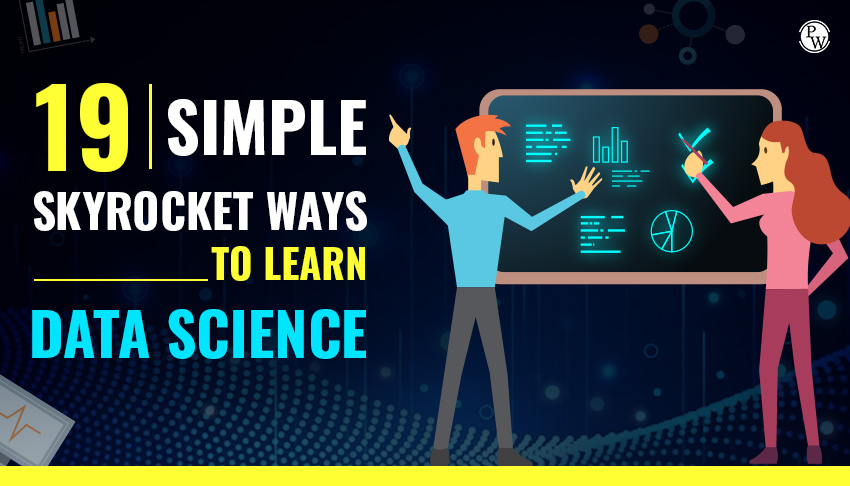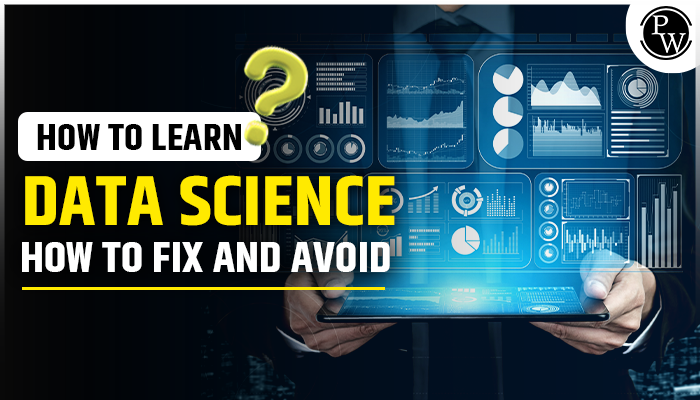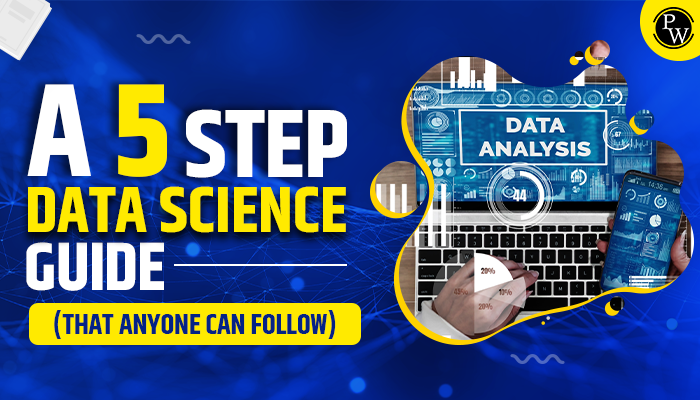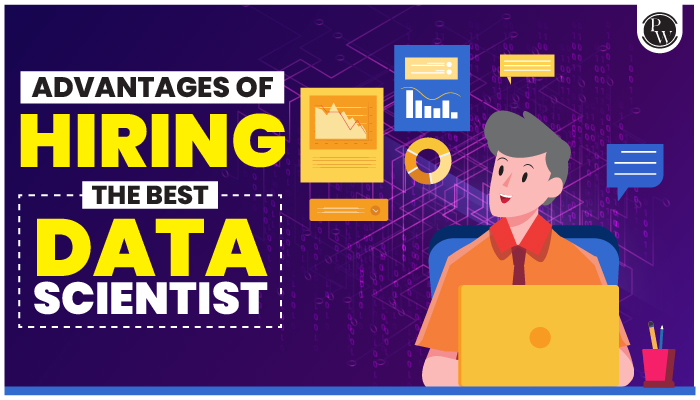Data Science is a field that combines various skills such as mathematics, programming, statistics, and domain knowledge to extract insights from data. It’s one of the fastest-growing and in-demand careers of the 21st century, and with the increasing amount of data being generated every day, the demand for data scientists is only going to increase. If you’re interested in learning Data Science, here are 19 simple ways that can help you skyrocket your learning journey.
Companies have started to recognize the value of the Data Science course, which has propelled data science to the forefront of the software business. Today’s expanding enterprises must successfully get and process data. Businesses use data scientists to produce insights that can help them outwit rivals and increase profits.
19 Steps to Learn Data Science Course
- Start with the basics: To understand Data Science, start by learning the fundamentals of mathematics, statistics, and programming languages such as Python or R.
- Learn to code: To become a Data Scientist, you need to be proficient in at least one programming language. Start with Python or R and practice writing code every day.
- Join online courses: There are several online courses available, such as Coursera, Udemy, and edX, which offer comprehensive and practical courses in Data Science.
- Get hands-on experience: Practical experience is essential for Data Scientists. Look for projects on websites such as Kaggle, and GitHub, or start your projects. Participate in hackathons: Participating in hackathons is a great way to improve your Data Science skills and gain practical experience. You’ll get to work with a team, develop your coding skills, and learn from others.
- Read books: Reading books written by experienced Data Scientists can help you understand the basics and gain deeper insights into the field.
- Network with other Data Scientists: Networking with other Data Scientists can help you learn from their experiences and get advice on your learning journey. Join online communities such as LinkedIn and attend Data Science meetups.
- Stay updated: Stay updated with the latest trends and developments in the field by subscribing to Data Science newsletters, attending conferences, and following Data Science influencers on social media.
- Learn data visualization: Data visualization is an important aspect of Data Science. Learn how to create visualizations using tools such as Tableau, matplotlib, and Seaborn.
- Practice data pre-processing: Data preprocessing is a crucial step in Data Science. Practice cleaning, transforming, and normalizing data using tools such as Pandas, Numpy, and Scipy.
- Learn machine learning algorithms: Machine learning algorithms are the backbone of Data Science. Learn supervised and unsupervised learning algorithms, such as linear regression, decision trees, and k-means clustering.
- Get familiar with big data technologies: Familiarize yourself with big data technologies such as Hadoop, Spark, and NoSQL databases.
- Learn cloud computing: Cloud computing is an important aspect of Data Science. Learn how to use cloud services such as AWS, Google Cloud, and Microsoft Azure for Data Science projects.
- Get familiar with deep learning: Deep learning is a subfield of machine learning and is growing in popularity. Learn how to build deep learning models using tools such as TensorFlow and PyTorch.
- Practice data analysis: Practice data analysis by working on real-world datasets. Try to find patterns, relationships, and insights in the data.
- Collaborate with others: Collaborate with others on Data Science projects. You’ll learn new skills, gain experience, and make connections in the field.
- Learn data ethics: Data ethics is an important aspect of Data Science. Learn about data privacy, bias, and responsible data use.
- Get certified: Get certified in Data Science from a recognized organization such as the Data Science Council of America (DASCA) or the International Association of Business Analysts (IABA) to showcase your skills and knowledge to potential employers.
- Continuously learn and improve: Data Science is a rapidly evolving field, and it’s important to continuously learn and improve your skills. Stay up-to-date with new developments, try new tools and techniques, and challenge yourself to continuously improve.
Recommended Course
- Decode DSA with C++
- Full Stack Data Science Pro Course
- Java For Cloud Course
- Full Stack Web Development Course
- Data Analytics Course
Conclusion
Learning Data Science is a valuable and rewarding investment for your career. By following the 19 simple ways outlined in this article, you can develop a strong foundation in the field, gain hands-on experience, and continuously improve your skills. Whether you’re a beginner or an experienced professional looking to make a career change.
Data Science is a field with a high demand for skilled individuals and offers ample opportunities for growth and advancement. You can also try a Data Science Master Course to help you upskill yourself. So, start your learning journey today, stay dedicated, and with time and effort, you’ll become a successful Data Scientist.
PW Skills Provide Various Platform
Frequently Asked Questions (FAQs)
Q1. What is Data Science?
Ans. Data Science is a field that involves the extraction of insights and knowledge from data through the use of statistical, mathematical, and computational methods. It combines various skills such as mathematics, statistics, programming, and domain knowledge to analyze and interpret data.
Q2. What programming languages do I need to know to become a Data Scientist?
Ans. To become a Data Scientist, you should have a good understanding of at least one programming language, such as Python or R. Both languages are widely used in the field and offer robust libraries and tools for Data Science.
Q3. Is a degree in Data Science necessary to become a Data Scientist?
Ans. While a degree in Data Science or a related field can help, it is not a requirement to become a Data Scientist. Many Data Scientists have degrees in mathematics, statistics, computer science, or other fields and have learned the necessary skills through self-study or on-the-job training.
Q4. How much time does it take to learn Data Science?
Ans. The amount of time it takes to learn Data Science depends on several factors such as prior knowledge, dedication, and the learning path you choose. On average, it takes around 6-12 months of focused study to develop a solid foundation in the field.
Q5. Are online courses a good way to learn Data Science?
Ans. Yes, online courses can be a good way to learn Data Science. There are many high-quality and comprehensive courses available on platforms such as Coursera, Udemy, and edX that offer practical and hands-on training in the field.
Q6. Can I learn Data Science on my own?
Ans. Yes, you can learn Data Science on your own through self-study and practical projects. However, it is recommended to seek guidance from experienced Data Scientists and to join online communities to get support and advice.
Q7. How can I get hands-on experience in Data Science?
Ans. The best way to get hands-on experience in Data Science is by working on real-world projects. You can find project ideas and datasets on websites such as Kaggle, and GitHub, or you can create your projects.







